

















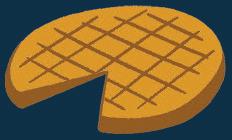





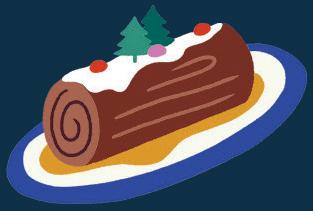
























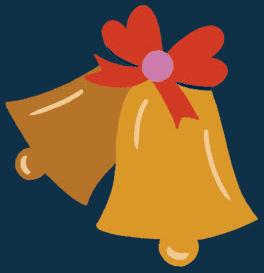






















































Festive tales for a Joyeux Noël
























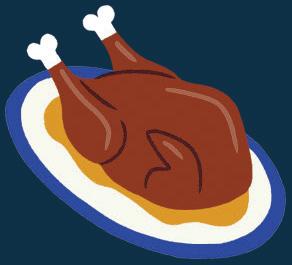





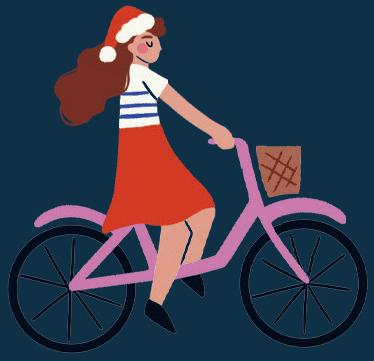

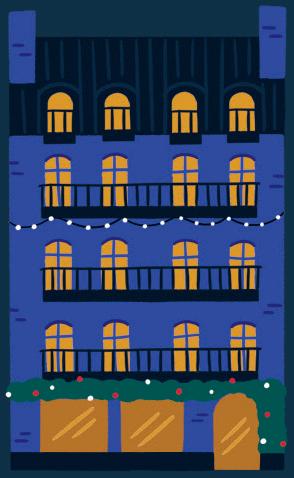























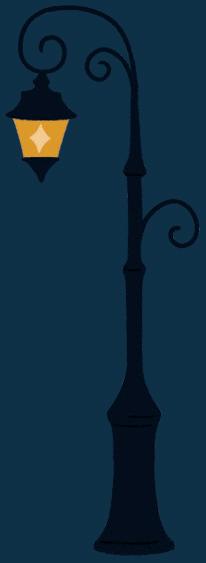
Vintage Classics is part of the Penguin Random House group of companies whose addresses can be found at global.penguinrandomhouse.com
First published in the United States of America as A Very French Christmas by New Vessel Press in 2017 First published in Great Britain as A French Christmas by Vintage Classics in 2024
Edited Translations Copyright © New Vessel Press 2017
Sandra Smith’s English translation of Irène Némirovsky’s short story ‘Noël’ © Sandra Smith.
Short story ‘Christmas at the Boarding School’ by Dominique Fabre © Dominique Fabre.
‘The Gift’ © Jean-Philippe Blondel 2017, first published in 2017 in the United States by New Vessel Press.
penguin.co.uk/vintage-classics
Typeset in 12/15 pt Bembo Book MT Pro by Jouve (UK), Milton Keynes Printed and bound in Great Britain by Clays Ltd, Elcograf S.p.A.
The authorised representative in the EEA is Penguin Random House Ireland, Morrison Chambers, 32 Nassau Street, Dublin D0 2 YH 68
A CIP catalogue record for this book is available from the British Library
ISBN 9781784879914
Penguin Random House is committed to a sustainable future for our business, our readers and our planet. This book is made from Forest Stewardship Council® certified paper.
Jean-Philippe Blondel
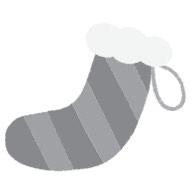
To be honest, h’ve always loathed Christmas. lf course, it was a bit different when the children were little and ran around the house clapping their hands, but that didn’t last too long. They quickly realised that Father Christmas didn’t exist and that this was just an occasion to get or to try to get things they had been wanting for the past several months. The ideal moment for being angry or sullen because they didn’t receive exactly what they had ‘ordered’. There’s nothing like the verb ‘to order’ to evoke the yearn-end holidays for me.
ut h’m being unfair to them. ht didn’t start with their birth, but well before. With my own childhood. My father, who was promoted within his company soon after my arrival on earth, had to move for his new position. My parents didn’t know anyone in the large provincial town where they were to establish themselves. My grandparents lived far away; they
were old and in poor health. We didn’t have guests over on the night before Christmas, or aew Year’s Jve. We’d hear the neighbours celebrating one floor below. end above us as well. end next door. We were surrounded by party hats and horns. We’d unwrap slices of cellophanen-sealed salmon. We cut up the frozen lamb. We savored bûche de Noël bought at the supermarket. ell in semin-religious silence, my brother, my mother, my father and me. lne might have thought h’d find comfort in my older brother, but we were six years apart in age and he always wanted to escape from this hellish silence, which he finally managed to do very early, leaving me to endure as well h could the meals, the weekends, the holidays and the end of year celebrations.
Pélène, on the other hand, adored Christmas. She had the enthusiasm of a little girl, spending hours debating the dec oration of the tree (should it be blue and silver or red and gold this year?), baking cookies, buying edvent calendars, chocolates and spices for mulled wine.
ht’s because of her that our children love Christmas – there’s no doubt about that. efter the divorce, of course, things got slightly complicated. The children, who were adults by then, bent themselves out of shape to not leave their father or mother alone for Christmas Jve or nay. Thibault, the eldest, usually arranged to be with my exn-wife the evening of the 24th and would come to spend the next
day with me, while hsabelle and ierre, the younger ones, did the opposite. lf course, when they each married and had their own children, that all became unmanageable and family gatherings got more haphazard – h certainly didn’t complain about it. Thibault, who for years had been a financial advi sor, began to hate his job and suddenly threw it aside to realise his dream of opening a restaurant. ut not just any restaurant: typically French cuisine, with locally grown products, all organic. Thibault wanted us to inaugurate his establishment all together the following Christmas – father, mother, offspring, uncles, aunts, cousins – the clan in all its splendour. Pélène’s heart attack on necember 22nd changed all that. She was buried four days later. She was sixtyn-seven years old. y that time, we’d already been divorced for two decades. We hadn’t seen each other for several months. Fol lowing these events, it was decided at a family meeting from which h was evidently excluded that on each and every necember 25th, the entire family would now have lunch at Thibault’s restaurant – La Tambouille – the name meant Chow – so that the living could celebrate, open their pres ents together and see joy spread over the faces of the youngest ones while also paying homage to the deceased mother.
ht’s now the twelfth Christmas since my exn-wife’s death. h’m seventyn-nine years old. h’m still in decent shape. Jven if
my hearing is showing signs of fatigue, my vision is still excellent and h still regularly do fifteen minutes of exercise daily as well as one or two walks a day. aevertheless, we know – the children, grandchildren and h – that h’m not immortal and that soon, on the 25th, they’ll also be honouring my memory.
iike every year for the past dozen, h’m waiting for them. They have to come pick up ‘Grandpa’. ierre and hsabelle will probably be in charge because Thibault is busy in the kit chen with his staff. Pe decided a few years ago that the restaurant should open for lunch on the twentyn-fifth. To be sure, we won’t be the only guests, thereby combining the beneficial (that’s to say the profitable) with the pleasurable (his idea of a family gathering is one where he makes only periodic appearances since he’s occupied in the kitchen). We thought the idea was doomed to fail (who after all was going to go out for lunch at a restaurant at noon on necember 25th?) but it turned out to be extremely sound. The place is totally packed each year, with tables booked up sometimes six months in advance. ierre and hsabelle, then, and without doubt one or two members of the third generation, those adorable kids who gradually transform themselves into brooding, unpleasant adolescents and then into impertinent and ironical adults. es always, ‘Grandpa’ gets put in the pas senger seat, known as the ‘death spot’, perhaps betraying a
secret desire on their part, even if they all find me endearing, to see me gone and buried so they can divvy up their inhernitance; it seems h’m much richer than h appear and that, thanks to well advised investments, h’ve managed to amass a small fortune. They’ve casually tried to ask me about this. h’ve said nothing to confirm or deny the rumour. They tell ‘Grandpa’ how happy they are to see him in good form; they shower him with charming, bland smiles, telling him about the latest exploits of the youngest grandchildren and bring ing him up to date on the brilliant careers of the eldest. They remind him of the names of the first great grandchildren. end then in the end, when there’s not much of a response beyond a grunt or a gurgle, they lean back in their seats saying that ‘Grandpa’ isn’t so easygoing, he always had a difnficult character and that doesn’t change with age, he could still be a bit more polite and show a little more gratitude towards this family that spends Christmas nay with him; he barely smiles, it’s true, which seems to prove that he doesn’t enjoy it and that we organise the whole hoopla for nothing, he’d rather stay at home near the radiator with a book; ah yes, books, for ‘Grandpa’, you’d think they were more important than human beings. Pow can they possibly know such things? ao member of this family reads novels, except for massn-market bestsellers, clichéd thrillers with contrived plots, idiotic romances or
discounted pseudoeroticism. end so forth. They drag the books around with them during the summer, glancing at a few lines and then quickly going back to their preferred activities – catching up on the latest gossip and convincing themselves that the life they’ve chosen is better than it is. Voilà. The absence of literature, among my children, is the most crushing failure of my existence. ht’s not yours, Pélène, h know. You used to reproach my passion for reading. My dilettantism – you used to say there are so many other more interesting and certainly more useful things to do – fixing things around the house, rearranging the furniture, laundry, cooking. non’t misunderstand me. h did my share of house hold chores, you can’t say otherwise, but it was never enough. end above all, you started to detest books. ut that wasn’t the case at the beginning. We’d finished our respective stud ies, you always had a novel in your purse, even if you didn’t open it too often. h don’t know what happened to us, Pélène. lr rather, h do. The kids soaked up our energy and our sense of self. We devoted all our time to them. We were happy to let them devour us. ut you see, it’s excruciating, isn’t it, while h’m waiting for them here on the sofa twelve years after your death and probably for not too much longer, while h’m sighing at the idea of losing my first name and my per sonality to become ‘Grandpa’, because now even ierre, hsabelle and Thibault call me ‘Grandpa’ and no longer ‘apa’,
just as h began to call you ‘Maman’ instead of using your first name; people ought to pay attention to those vocabulary shifts since they’re indicative of the real turn of events – while h’m waiting for them and close my eyes as h listen out for the honking of the horn announcing their arrival, h wonder if we were right. ebsolutely.
ecause the wild part of me, that part that frightened and delighted you at the start of our relationship, the part that you swore to tame and that you managed to subdue until, realising that a certain routine had become our existence, you began to be bored to death and to find our union so dull that you opted to file for divorce – that part of me that defined me as much as my other, more refined side, more consensual, the lover of books and fine liquors, the midlevel manager of a textile company, a pretty boy who was a bit too affable, that part, h believe h’ve lost. end when you lose part of your identity, you already have one foot in the grave. non’t worry, the other three will follow soon.
h still talk to you, you see, Pélène. Jven though our divorce was finalised thirtyn-two years ago. Jven though after you, there was iydia, that shapely redhead who you became jealous of when we separated. end then iudmilla. llivia. enne. Jlisabeth. Five women in thirtyn-two years. Two women with whom, in contrast to you, h stayed on good
terms. ht has to be said that the stakes weren’t the same. We were adults, immune, parents, we knew life wasn’t a bed of roses. h meet them sometimes for lunch or dinner. We get along well. h don’t have the slightest regret. hn any case, in my emotional life, h have no regrets. end that includes you, for sure, Pélène. h’m happy to have shared all those years with you. Well, perhaps not those last five.
Sorry?
Who?
eh, yes, okay. lne.
h have one regret. lnly one. hn seventyn-nine years of life. h can’t complain. There. h hear the horn honking. ht’s time for me to turn into ‘Grandpa’, Pélène. ieave me.
lne p.m. Still two hours to go and then h can pretend h’m exhausted and they’ll take me home. h try to put on a good face. h smile when spoken to – it’s one of the rare things that connect me to youth – smiling. h’ve always taken care of my teeth and they’re still in astonishingly good condition for my age. Two implants, a bridge, the rest are original. Their colour hasn’t been too spoiled by the cigarettes h smoked with pun ishing regularity for three decades until stopping abruptly at age fifty. That hasn’t prevented me from dreaming of taking
a puff once in a while – and even from imagining that h smell cigarette smoke in the midst of this group of nonn-smokers who make up my family and who speak about me in the third person. The stilted thanks, the fake cries of pleasure, the obligatory joy. h join in. h don’t want them to reproach me for spoiling their day. ut when h open the packages, h nearly faint. e pair of socks, a bathrobe, a comb; items fit for the hospital or retirement home. onas, one of my less irritat ing grandsons, gave me a watch, a rather ugly metal watch, true, but still it was a present you might receive at any age. Jvidently, no one managed to buy me a novel because, as Chantal, Thibault’s wife, declared, ‘You’re hard to buy for, Grandpa, you’ve read them all, and who knows what you’d like.’ ht wouldn’t have occurred to anybody to ask me ahead of time for a list, for example. en old guy has no desires, that’s well known. end plus to give me a novel, that would mean going into the centre of town, walking into a bookshop – it doesn’t take much more than that. You could buy one at a superstore, but Grandpa doesn’t like novels from superstores, it seems. Pe’s difficult, Grandpa. The restaurant is full. ht’s been transformed for the occansion. hnstead of twenty tables of four or six, there are five large tables – five families gathered to share a convivial moment. Three of them are regulars. They make an appear ance here every necember 25. The fourth, no. aew people.
They’re a bit less numerous than we are, but they’re still a good dozen. Two daughters, their husbands, the grandchilndren, two or three inn-laws, and then, presiding over the assembly, a woman with white hair. The grandfather must have given up the ghost. Men generally resist less well than their spouses. h’m observing her. Per slightly absent look. The smile floating on her lips. She’s bored as well. She feels a bit guilty since she should feel great, there with all her family – but she suppresses a yawn. She’d rather be elsewhere. She’s no longer used to long meals. She never liked them, by the way. h realise that h’m trying to invent a life for her. That’s the problem with literature. lne narrates. lne embroiders. lne adds material.
ht’s at this moment she turns her head slightly towards me and our eyes meet.
h hear a faint explosion far away. ht’s like a summer storm in the middle of winter, or the start of fireworks whose noise is muffled by the distance. h can’t take myself away from her gaze. My memory has turned into a crazy machine, search ing all my internal libraries for the relevant novel, and in this heap of cards and photographs that we store inside ournselves, the information that h need is right there. ecause h know her.
h’m sure h know her.
ut h don’t recognise her.
h realise that my breath is short and my heart is beating fast – h blush a bit and chuckle. h totally chuckle. et the other end of the room, she narrows her eyes and silently pronnounces my name, Thomas; h nod, she too, more slowly. My body panics. h wonder if h’m not going to die there in the middle of a Christmas celebration, from a heart attack whose cause will remain unknown to them, just as they are unaware of my inner compartments, my trajectory, my youth, my life before their mother and with their mother prior to their births, those days of snow or heat waves when our bodies remained entwined and we couldn’t suppress our desire.
My hand on her shoulder.
My young hand on her naked shoulder.
My young hand that slowly unfastens the white bra to unveil this naked shoulder with three moles at the base of the shoulder blade.
Three moles. Pélène didn’t have any in that place. h close my eyes. h see a purple neon sign in the street, a bit farther away, with a cocktail glass and a straw in the shape of a parasol, the Relax Cocktail iounge, the name comes back to me now. There was an evening getn-together, organised by the company executives, ‘Come on, Thomas,’ they said. ‘You’ll see. ht’s really nice, the atmosphere is subdued and the hostesses are obliging.’ Pearty laughter. h was embar rassed for her.
elice.
There, that’s her name. elice. elice ieprince.
She was the only woman in management at Fabre & Sons, and evidently they didn’t think for an instant that their smutty undertone could offend her. h think that actually she didn’t exist for them, she served solely as an example and a counterexample when one reproached them for their retrongrade attitude towards women. ‘ ut that’s absurd!’ thundered the director. ‘iook at elice! She’s in charge of exports, isn’t that right, elice?’ Tight smiles. She didn’t stay long. She resigned. She left for the competitor. h never got any news. For a while, yes, h regretted it. ecause there was that moment, suspended. e parenthesis. h had of course promised my colleagues and my superiors that h’d join them at the Relax, but first h had to stretch a little bit, h had a bad back. h’d thought of using headaches as an excuse, but they would have laughed – migraines, that’s feminine, that’s what a woman resorts to when she doesn’t want to make love; migraines are degrading and ridiculous. The back, that’s good. ht’s a perfect manly excuse. iots of weight to carry around, lots of responsibilities and then typnically male activity; cutting wood, assembling furniture, spending hours under the hood of a car, and suddenly you find yourself folded in half from lumbago. Yes, definitely, back pain, that’s just what was needed, especially since
everyone knew h had a double herniated disc, h broadcast it everywhere when h came back from being seen at the docntor’s. Jverybody sympathised. ao one checked. h knew that a double herniated disc would be useful to me later. They left in a hubbub of insolence and dirty jokes. elice ieprince came down a few minutes later. She recoiled slightly upon seeing me and then she put her hand over her mouth, to apologise for this fright that she shouldn’t have had.
‘You didn’t go with them?’
‘ao, h . . . h told them a white lie: back pain.’
She raised an eyebrow. h didn’t understand what made me, all of a sudden, confess to her the truth that h hid from the others.
‘White lie?’
‘Yes, it’s made up. ut h didn’t feel like . . . hn the end, you know . . . hostesses, alcohol, raunchy stories . . . sorry . . . h don’t want you to think h’m better than them, h . . .’
‘ ut you are.’
‘Sorry?’
‘ etter than them. You are. Undeniably.’
‘That’s not what they think.’
‘They don’t think anything, Thomas. The only thing that interests them is their own careers. end money. Take me, for instance: they think h’m a dummy who needs to be ravished in order to let loose.’
h recall the heat on my face. h wasn’t as free as her. h wasn’t used to a woman talking like that. Pélène wasn’t so crude.
Pélène adhered to the norm.
‘h think h’m going to take a walk in town. elong the river, apparently it’s beautiful.’
‘ht’s going to be dark soon.’
‘Jxactly. no you want to join me?’
Such boldness was new for me, an audacity that pushed me to invite a woman h barely knew to join me for an even ing walk. h wasn’t the type of man capable of such things. h had a good life; h was a father and a loving husband absorbed in work, a creature of habit whose children made fun of him at times because his rituals were immutable, a prisoner for whom books were the sole diversion – a passion shared by no one around me. end suddenly, with elice ieprince, h entered into one of those secret novels that frightened and attracted me at the same time. h rediscovered a part of adolescence as well, before my path had already been decided, before bumpy roads became smooth highways.
That’s how we ended up alongside the river, elice ie prince and me. She very quickly confided her thoughts to me, by the way. aot just about other companies, but other cities, countries, horizons. She felt she couldn’t remain here for too long. She’d leave Fabre & Sons fairly soon. We talked for hours; there were times we said nothing. h hadn’t done that